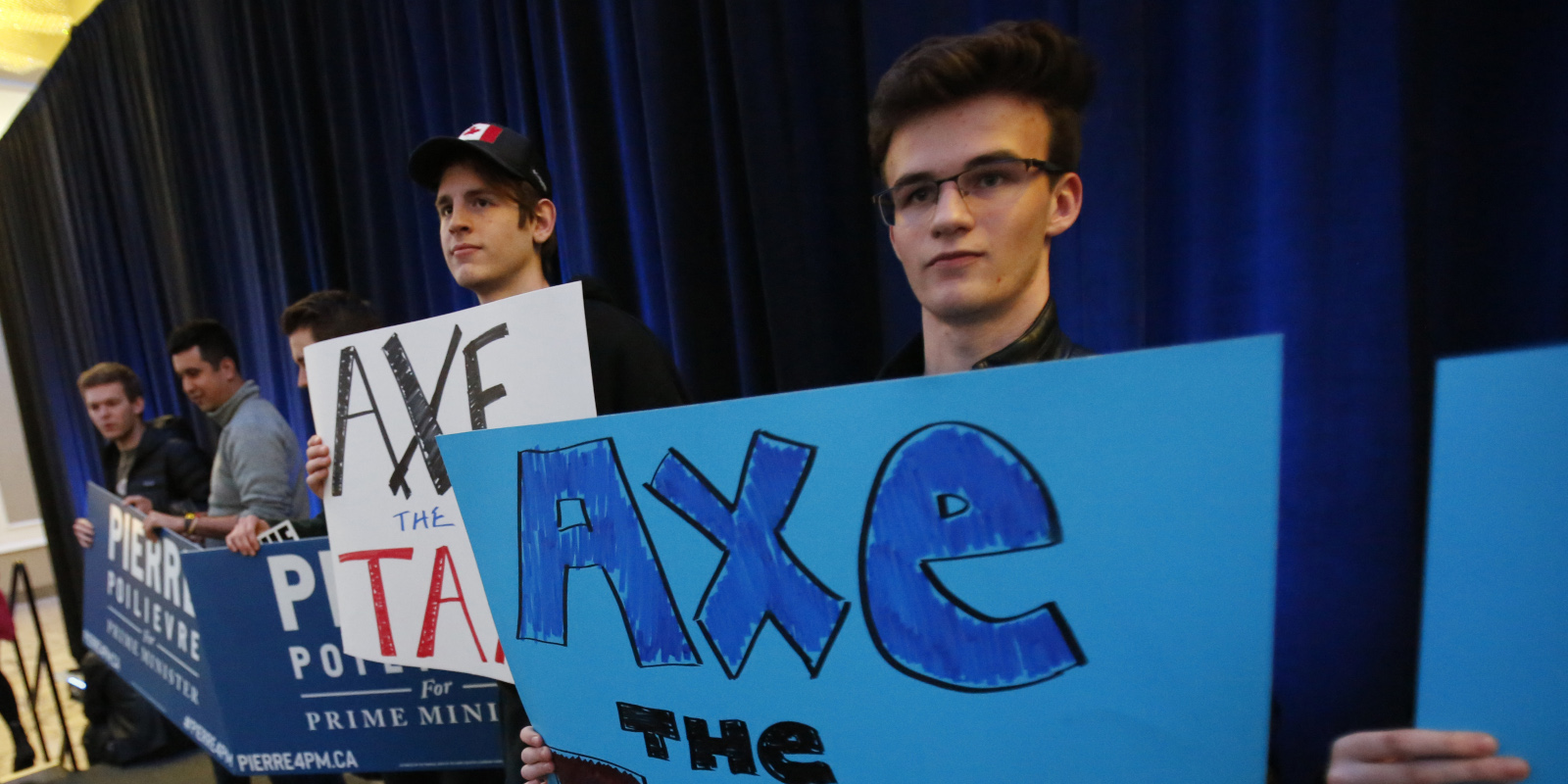One of the most intriguing questions of the Conservative leadership race is whether any candidate would put their head above the parapet and support a carbon tax.
With news this week that Jean Charest plans to scrap the carbon tax and revert to Canada’s pre-2015 emissions targets, the answer appears to be a resounding no.
Today is the final day for candidates to secure a place on the final ballot, so in our Conservative leadership roundup, we’ll take a look at the state of play and dig into the candidates’ carbon tax positions.
Carbon tax opposition across the board
Jean Charest officially declared his opposition to the federal consumer carbon tax this week and promised to abide by emissions targets established by former Prime Minister Stephen Harper, rather than the current targets promised by the current Liberal government.
Charest said he would respect the individual decisions made by provinces to battle climate change. The current policy functions as a backstop, imposing a tax on provinces that don’t meet the federal standard.
Charest told the Canadian Press on Monday that he didn’t want to go “down the route of a more complex consumer tax or consumer pricing.” That’s likely a reference to Erin O’Toole’s carbon tax proposal last year that would have deposited refunds onto “low carbon savings accounts” that could be used to make environmentally-friendly purchases.
Charest’s plan also promised tax credits for carbon capture and storage technology and would remove the federal portion of the HST on electric vehicles, high-efficiency windows, and Energy Star appliances. He is also pledging to roll out tax credits for carbon capture and storage technology and for carbon dioxide removal facilities.
Patrick Brown, who has previously supported a carbon tax, said in hindsight it was “not the right approach,”During his campaign launch speech, Brown told supporters that Conservatives care about lowering greenhouse gas emissions and the Conservative Party must be part of the solution to climate change. https://www.cbc.ca/news/politics/carbon-tax-poilievre-charest-brown-1.6402881 and promised to consult the party members and caucus on his plan for the environment.
Poilievre, who has been consistently and loudly anti-carbon tax, has tried to paint Charest and Brown as supporters of the policy, referring to it as the “Trudeau-Charest-Brown” carbon tax. While both have flirted with the idea in the past, it seems like carbon taxes are officially a non-starter in the current leadership race.
Ontario MP Scott Aitchison has said that while the carbon tax is an effective policy, it is also an unfair one, and promised to scrap it.“We need to work with municipalities and we need to help Canadians reduce their footprint, not punish them.” https://www.ctvnews.ca/politics/conservative-leadership-candidate-aitchison-calls-carbon-tax-effective-but-would-scrap-it-1.5862695
Charest’s plan aligns with recommendations from the advocacy group Conservatives for Clean Growth.“Canada has unprecedented economic and technological opportunities as the world moves to Net Zero.” https://conservativesforcleangrowth.ca/
Although the group doesn’t advocate for a retail carbon tax, its website says that “pricing industrial emissions” is one of the tools needed in an effective climate plan.
That’s a compromise many Canadians have seen before, with even fervent opponents of the carbon tax like Ontario Premier Doug Ford and Alberta Premier Jason Kenney settling for a tax on heavy emitters.
The final candidate deadline is today
The deadline to get a spot on the final ballot of the leadership race is today and several candidates on the margins will have spent this week fundraising frantically to secure a spot.
So far, Leslyn Lewis, Jean Charest, Pierre Poilievre, Roman Baber, Patrick Brown and Scott Aitchison have been verified by the party.
The candidates must provide 500 signaturesThe signatures must span at least 30 Electoral Districts in 7 provinces. from party members and pay the remaining $150,000 registration fee and a $100,000 security deposit.
A recent poll by Ipsos for Global News shows the uphill climb for many candidates even to get recognized among Conservative voters.
Only Charest and Poilievre tallied less than 50 percent of respondents saying they “don’t know enough about them” to answer poll questions.
The poll also shows that Brown and Charest are the most polarizing candidates with Poilievre the most popular, with 49 percent favourability and 20 percent unfavourability.
“It suggests that any attempt by the Charest campaign to mount an anyone-but-Poilievre drive might have limited appeal. An anyone-but-Charest message could actually have more traction,” wrote polling expert Éric Grenier in The Writ, his newsletter providing analysis on Canadian elections.
Recommended for You

‘Our role is to ask uncomfortable questions’: The Full Press on why transgender issues are the third rail of Canadian journalism

Need to Know: Mark Carney’s digital services tax disaster

Theo Argitis: Carney is dismantling Trudeau’s tax legacy. How will he pay for his plan?

Kirk LaPointe: B.C.’s ferry fiasco is a perfectly Canadian controversy



